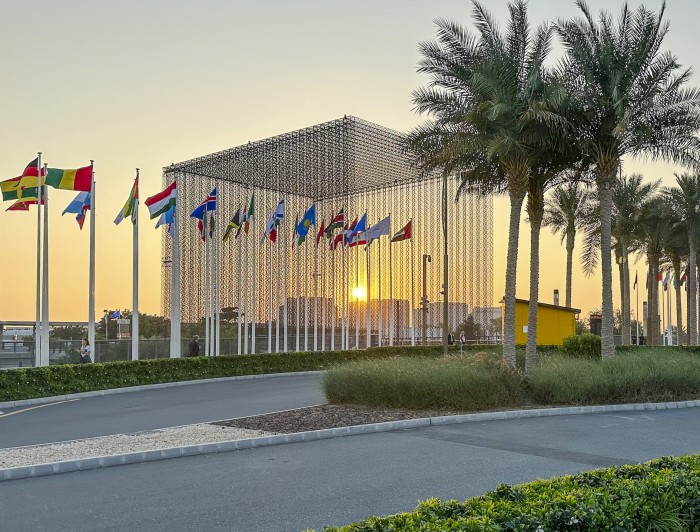Get analysis, insight & opinions from the world's top marketers.
Sign up to our newsletter.
The latest climate conference is a mixed bag, resistance to change at a political level, combined with people driving real business action. WFA CEO Stephan Loerke reflects on three days in Dubai.

Holding the world's annual Climate Summit in Dubai was always going to be a controversial decision. The city is built in the desert and boasts countless golf courses, an indoor ski resort with five slopes and one of the highest concentration of air-conditioned shopping malls in the world.
As I get out of the airport, the images and impressions collide: illuminated palm trees along urban motorways as far as the eyes can see, a billboard the size of a football pitch announcing a new Armani high-end real-estate development, a traffic jam of Ferraris, Lamborghinis and Porsches as I get closer to the hotel, and cranes, cranes and more cranes...
Not surprisingly, the average UAE citizen has the highest carbon footprint per capita in the world – 50% more than that of an American, three times than that of a European and 10 times than that of a Brazilian.
Add to the mix the fact that this year's COP President is also the chairman of ADNOC, the UAE's largest fossil energy producer, and one could have been forgiven for not holding much hope about the likelihood of progress being made at this year's event.
And then there is the broader context: geopolitical tensions, economic uncertainty, global inflation – for many citizens and governments, the climate crisis simply isn't the main preoccupation right now.
But the world can't afford to waste any more time. According to a recently released European research, 2023 is going to be the hottest year in the last 125,000 years. Early weather predictions for 2024 seem to indicate that the trend will continue.
So, how did this year's COP turn out? Did it make progress? Yes, it did. Enough? Certainly not. How could it? The global climate transition entails such a profound and complex transformation of our social and economic models in such a short timeframe that the pace of progress will always be a source of frustration and anxiety.
A COP Summit is physically structured around two concentric circles: the Blue Zone in the inner circle where the negotiation between governments take place covering timelines, treaties and emission caps. Outside this is the Green Zone or the 'fringe COP'. That's where company reps, start-up entrepreneurs, activists, academics, NGOs and civil society meet.
In this space, it’s all about actions rather than targets. And that's also where the discussions around marketing take place and the role that marketers will have to play in changing consumer behaviour.
Here are my five main takeaways from this year's COP from a marketer perspective:

There are plenty of reasons why we should all be worried about the current trajectory of the planet’s average temperature and the seemingly slow and inadequate global inter-governmental response. I don’t want to deny that. But exasperation or defeatism isn’t going to get us very far.
What gives me hope is that there is now an engagement of the business community on a scale that we’ve never seen before. The climate transition is going to profoundly reshape consumer demand in the years to come. Investors get that and are reshaping their portfolios and factoring that into their stock valuations.
Those marketers that will be faster and better at responding to the new demand will outcompete the competition and win in the marketplace.
With the Planet Pledge and other complementary initiatives, WFA is determined to support our members to embrace the challenges we face as societies and businesses whilst realizing the immense opportunities that the transition to a sustainable future will bring.